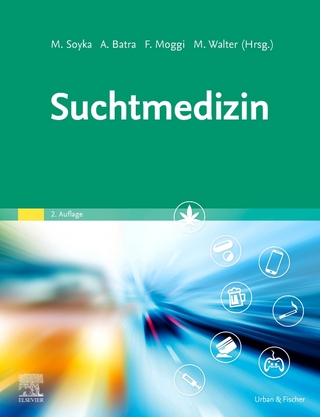
Translation of Addictions Science Into Practice
Pergamon Press (Verlag)
978-0-08-044927-2 (ISBN)
- Titel ist leider vergriffen;
keine Neuauflage - Artikel merken
Recent advances in the understanding of the genetic, neurochemical, behavioral and cultural underpinnings of addiction have led to rapid advances in the understanding of addiction as a disease. In fact, advances in basic science and the development of new pharmacological and behavioral therapies associated with them are appearing faster than can be assimilated not only by clinical researchers but practitioners and policy makers as well. Translation of science-based addictions knowledge into improved prevention, assessment and treatment, and communication of these changes to researchers and practitioners are significant challenges to the field.
The general aim of Translation of Addictions Science Into Practice is to summarize current and potential linkages between advances in addiction science and innovations in clinical practice. Whilst this book is primarily focused on translation, it also encompasses some scientific advances that are relevant to dissemination, and the book is itself a tool for disseminating innovative thinking.
The goal is to generate interest in application opportunities from both recent research and theoretical advances.
Peter M. Miller, Ph.D., is a clinical psychologist and Professor of Psychiatry and Behavioral Sciences in the Center for Drug and Alcohol Programs at the Medical University of South Carolina. He is Editor-in-Chief of the journal Addictive Behaviors and an experienced researcher and clinician in the field of alcohol use disorders.
TRANSLATION OF ADDICTIONS SCIENCE INTO PRACTICE:
UPDATE AND FUTURE DIRECTIONS
Preface
Section title: GENETICS AND NEUROSCIENCE
Chapter 1
The Interplay between Genotype and Gene Expression in Human Brain: What Can It Teach Us about Alcohol Dependence?
Chapter 2
Common Genetic Influences on Antisociality and Addictions: Implications for Clinical Science and Practice
Chapter 3
Opioids, Pain and Addiction: Cause and Consequence
Chapter 4
Imbalance between Neuroexcitatory and Neuroinhibitory Amino Acids Causes Craving for Ethanol: From Animal to Human Studies
Chapter 5
Cannabis and the Brain: Implications of Recent Research
Section title: PHARMACOTHERAPY
Chapter 6
The Plasticity of Alcohol Addiction Suggests Novel
Approaches to Pharmacological Intervention
Chapter 7
Pharmacotherapies for the Treatment of Alcohol Dependence: Current and On-the-Horizon
Chapter 8
Agonist Treatment for Stimulant Abuse and Dependence
Chapter 9
Topiramate-Induced Neuromodulation of Cortico-Mesolimbic Dopamine: Implications for the Treatment of Nicotine and Alcohol Dependence
Section title: PSYCHOLOGY AND SOCIOLOGY
Chapter 10
Advances in the Scientific Study of Craving for Alcohol and Tobacco
Chapter 11
Advances in the Treatment of Craving for Alcohol and Tobacco
Chapter 12
Cognitive, Affective and Motivational Effects of Smoking
Chapter 13
Therapeutic Outcome Research in the Addictions
Chapter 14
Implications of Research on Comorbidity for the Nature and Management of Substance Misuse
Chapter 15
The Role of Impulsive Personality Traits in the Initiation, Development and Treatment of Substance Misuse Problems
Chapter 16
Translational Research Involving Adolescent Substance Abuse
Section title: PRACTICE AND POLICY
Chapter 17
Dissemination of Evidence-Based Treatment into Substance Abuse Clinical Practice
Chapter 18
Alcohol Screening and Intervention in Medical and Surgical Settings
Chapter 19
Internet-Based Interventions for Alcohol, Tobacco and Other Substances of Abuse
Chapter 20
Alcohol Use among Undergraduate Students: From Brief
Interventions to Behavioral Economics
Chapter 21
Ethical and Policy Issues in the Translation of Genetic and Neuroscience Research on Addiction
Section Title: CONCLUSION
Chapter 22
Pathways to Innovation in Addiction Practice
| Erscheint lt. Verlag | 14.5.2007 |
|---|---|
| Verlagsort | London |
| Sprache | englisch |
| Gewicht | 1060 g |
| Themenwelt | Medizin / Pharmazie ► Medizinische Fachgebiete ► Suchtkrankheiten |
| ISBN-10 | 0-08-044927-1 / 0080449271 |
| ISBN-13 | 978-0-08-044927-2 / 9780080449272 |
| Zustand | Neuware |
| Haben Sie eine Frage zum Produkt? |
aus dem Bereich


